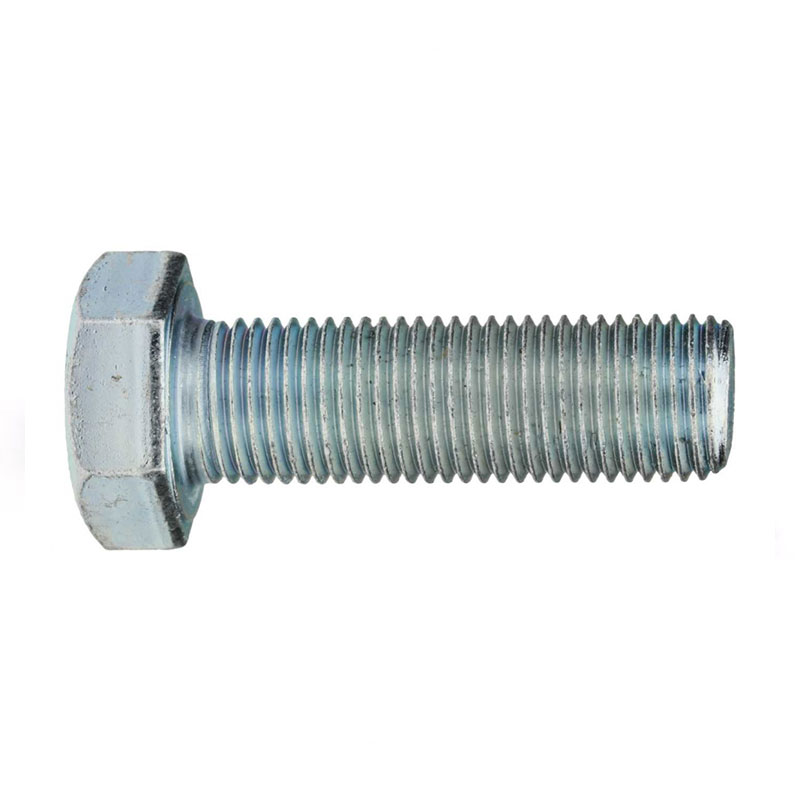The DIN 961 Hex Bolt: A Standard for Strength and Reliability
2024-09-04
When it comes to securing components in machinery, construction, and a variety of industrial applications, the choice of fasteners is critical. Among the many options available, the DIN 961 hex bolt stands out as a preferred choice for its strength, reliability, and adherence to rigorous standards. This blog explores what makes the DIN 961 hex bolt a staple in various industries, highlighting its features, benefits, and applications.
What is a DIN 961 Hex Bolt?
A DIN 961 hex bolt is a type of fastener designed to provide strong and reliable connections in a range of applications. It conforms to the DIN (Deutsches Institut für Normung) standard 961, which specifies dimensions, mechanical properties, and tolerances for hex bolts. This standardization ensures that DIN 961 hex bolts meet high-quality and performance criteria, making them suitable for demanding applications.
Key Features of DIN 961 Hex Bolts
1. Hexagonal Head
The DIN 961 hex bolt features a hexagonal head, allowing for easy installation and removal using standard wrenches or sockets. This design provides a secure grip and allows for high torque applications, ensuring a tight and reliable connection.
2. Standardized Dimensions
The DIN 961 standard defines precise dimensions for the hex bolt, including thread diameter, length, and head size. This standardization ensures compatibility with other components and fasteners, making it easier to design and assemble systems.
3. High-Strength Materials
DIN 961 hex bolts are typically made from high-strength materials such as carbon steel, alloy steel, or stainless steel. These materials are chosen for their durability and resistance to mechanical stresses, ensuring that the bolts can withstand heavy loads and harsh conditions.
4. Thread Quality
The threads on a DIN 961 hex bolt are precision-engineered to ensure smooth and reliable engagement with nuts and other threaded components. This precision contributes to the overall strength and integrity of the bolted connection.
5. Corrosion Resistance
Depending on the material and coating, DIN 961 hex bolts can offer varying degrees of corrosion resistance. Stainless steel versions, for example, are highly resistant to rust and corrosion, making them suitable for outdoor and marine applications.
Benefits of DIN 961 Hex Bolts
1. Enhanced Strength
The DIN 961 hex bolt is designed to handle high loads and stresses, thanks to its standardized dimensions and high-strength materials. This makes it suitable for critical applications where strength and reliability are essential.
2. Consistency and Reliability
By adhering to the DIN 961 standard, these hex bolts provide consistent quality and performance. This reliability ensures that the bolts will perform as expected, reducing the risk of failures and maintenance issues.
3. Ease of Use
The hexagonal head design allows for easy tightening and loosening using common hand tools. This ease of use speeds up the assembly and disassembly process, making it convenient for both professionals and DIY enthusiasts.
4. Versatility
DIN 961 hex bolts are versatile and can be used in a wide range of applications, including machinery, construction, automotive, and structural connections. Their ability to handle various loads and conditions makes them a go-to choice for many industries.
5. Cost-Effectiveness
Given their high strength and durability, DIN 961 hex bolts offer good value for money. Their long service life and reliability reduce the need for frequent replacements, contributing to cost savings over time.
Applications of DIN 961 Hex Bolts
1. Construction
In construction, DIN 961 hex bolts are used to secure structural components, including beams, columns, and plates. Their strength and reliability are crucial for maintaining the stability and safety of building structures.
2. Machinery and Equipment
DIN 961 hex bolts are commonly used in machinery and equipment assemblies. They provide a secure connection for moving parts and components, ensuring smooth and efficient operation.
3. Automotive Industry
In the automotive industry, DIN 961 hex bolts are employed in various applications, from engine assemblies to chassis components. Their ability to withstand high stresses makes them suitable for critical automotive applications.
4. Structural Engineering
For structural engineering projects, DIN 961 hex bolts are used to join steel sections and other structural elements. Their strength and precision are essential for ensuring the integrity of engineered structures.
5. Marine and Outdoor Applications
Stainless steel versions of DIN 961 hex bolts are used in marine and outdoor environments where corrosion resistance is important. These bolts ensure reliable performance even in harsh weather conditions.
Conclusion
The DIN 961 hex bolt is a vital component in the world of fasteners, offering strength, reliability, and consistency across various applications. Its adherence to the DIN standard ensures high-quality performance, making it suitable for demanding environments in construction, machinery, automotive, and more. Whether you’re securing structural elements, assembling equipment, or working on a DIY project, the DIN 961 hex bolt provides a dependable solution for your fastening needs. Embrace the quality and versatility of DIN 961 hex bolts to ensure the success and longevity of your projects.



